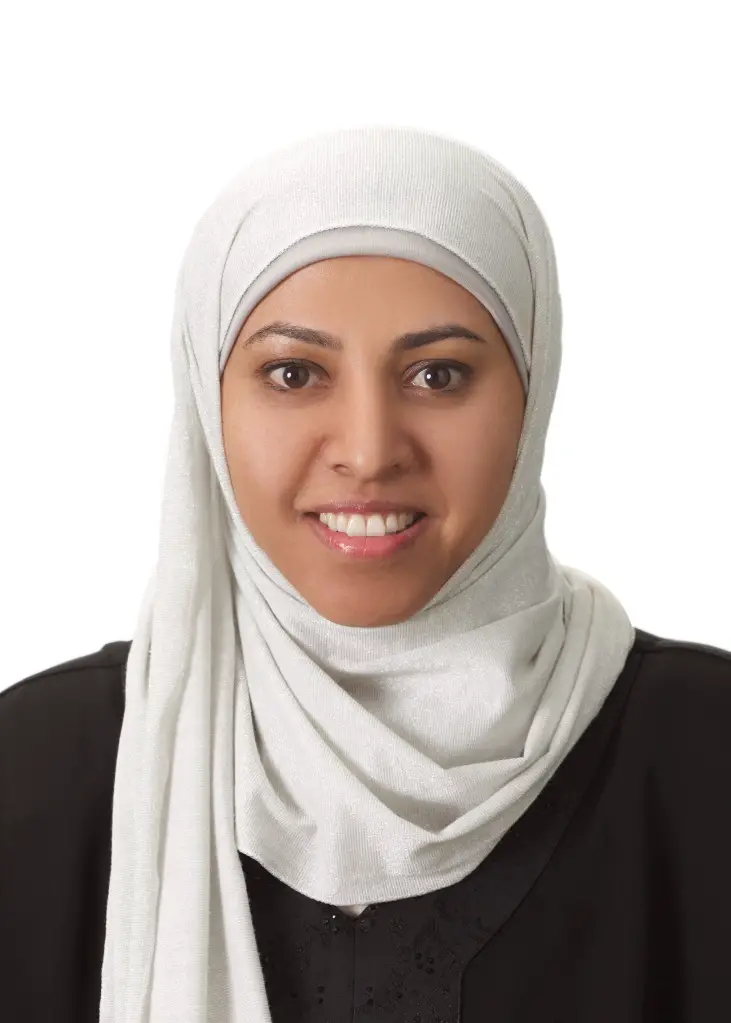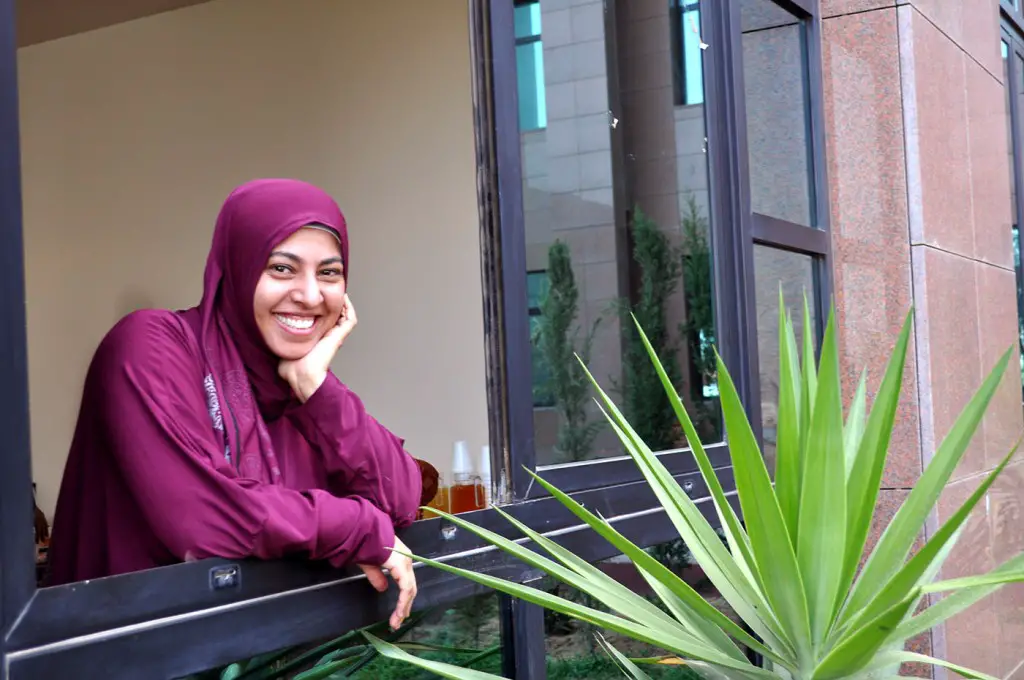March 19, 2023
Alexandra Kinias

Based in the UK, renowned independent Yemeni researcher Dr. Nadia AlSakkaf has expertise in media, gender, democratic transitions, climate change and socio-economic development. The former Yemeni Minister of Information is collaborating with the organization SalamatMENA to analyze qualitative research supported by the Sec Dev Foundation and quantitative data from a global survey of online experiences in MENA, with a focus on gender-based violence. The research is supported by the International Development Research Centre (IDRC) and led by the Centre for International Governance Innovation.
The research is intended to help governments, the private sector, social media platforms and civil society to improve the design of their responses to technology-facilitated gender-based violence with regulations, by building movements, through education and with legal recourse.

With over 25 years of experience in tech engineering, journalism, politics and advocacy for women rights and freedom, AlSakkaf is one of a kind pioneer. She didn’t lead your normal kind of life, let alone a life of a woman born and raised in a conservative patriarchal country in the Middle East. She was named first in many fields. “At the age of 26, l was the first woman to run a national independent media outlet, the Yemen Times. I used my position to become the first Yemeni woman to give a TED talk, in which I told the world a bit about my country. In 2014, I was the first woman to become Minister of Information in Yemen. Prior to that, I was among very few women, if not the only one, serving on several high level political committees, working towards a national dialogue and peace in the country, following the 2011 uprising,” she says.
Al Sakkaf held position of Chief Editor of The Yemen Times, from 2005 until 2014. She has worked previously as the director of research of the economic think tank, Arabia BrainTrust. She is also co-founder of the Connecting Yemen initiative to advocate for accessible and affordable internet in Yemen. Moreover, she is a founding member of the National Reconciliation Movement. Her 2011 TED Talk “See Yemen through my eyes”, is one of the most known videos on Yemen. It was translated into 34 languages and had over half a million views.
Born into a modern-minded family, Al Saqqaf had more choices and privileges than most of her peers, not to mention girls in Yemen, in general. “Yemen is a very hard country for women,” she says, “But l was shielded from this reality.” Her father, Professor Abdulaziz Al Saqqaf, was a pioneer and a visionary man, ahead of his time. He earned several degrees from Harvard, Tufts and the Sorbonne. Back in Yemen, while he taught economics at Sana’a University, he founded Yemen’s first English language newspaper in 1990, where he was also its Chief Editor.
“Education was the key word in our family — that and hard work.” Al Saqqaf looked up not only to her father, but also to her mother who completed a university degree in English while raising four little children, and who also pursued a career in education. Through a scholarship, AlSakkaf studied computer science engineering at one of the most prestigious engineering universities in India. The double tragedies she experienced, with the assassination of her father in 1991, and the death of her mother a year later left Al Saqqaf heartbroken, and was not yet ready to live in Yemen after her graduation. She traveled on a Chevening scholarship to the UK to do her master’s degree in Information Systems Management.
“I returned to Yemen a year later and worked for a year as a systems analyst, before I realized I was in the wrong discipline. That’s when I threw everything away and started from scratch, working in development with the Oxfam-GB program in Yemen and embarking on a career as a journalist with the Yemen Times.”
In March 2005, she was appointed by the board to head the newspaper. She became the first woman to run a national periodical in Yemen. “That first year as editor in chief of a prestigious periodical, in a male-dominated industry in a conservative country, was very hard.” Al Saqqaf had just been married then and was struggling to balance between her work and home responsibilities. “If it weren’t for my supportive husband, I would not have succeeded in leading the newspaper,” she adds.

As a female media leader in a male dominated industry, operating within, a patriarchal society, she fought many battles on multiple fronts, not to mention the defiance from her own male staff. But with the support of her husband, brothers and sister, she defied the challenges in her work environment. “In the first year, I had to fire half of the staff and overhaul the newsroom. I hired young ambitious women and men and created a young, technically enabled and gender-balanced newsroom. It wasn’t an easy task, but a woman’s got to do what a woman’s got to do.”
Under her leadership, the Yemen Times won regional and international awards. She too received many awards. In 2006 , she received the Gibran Tueni Award and the Free Media Pioneers Award. In 2013, she received the Oslo Business for Peace Award as editor of the Yemen Times. In addition, she was recognized by the BBC as one of 100 Women who changed the world and one of the World Economic Forum’s Young Global Leaders in 2015.
In addition to democracy, press freedom and human rights in general, AlSakkaf campaigned for women’s rights and put women’s issues at the forefront of the paper including some very controversial issues such as female genital mutilation She has also written many policy, research papers, and book chapters, and has authored two books on Yemeni women’s empowerment.
In 2012, AlSaqqf launched the first community radio in Yemen, Radio Yemen Times in Sana’a, and followed that in 2014 with Radio Lana in Aden. Also in 2014, she was appointed as the first woman Minister of Information in Yemen. “I faced the patriarchal environment, only this time on a larger scale. Previously, I had hoped that the higher a woman rises, the easier it would be for her to assert her authority. I was wrong. In fact, the higher we climb on the ladder of power, the more resistance we face, because we are perceived as a major threat to the patriarchy.”
Her position as Minister of Information was short lived. She fled Yemen in 2015 after the coup, with a death threat lurking over her head. She arrived to the UK on a PhD scholarship in Political Science. She completed her PhD in 2019 and published her thesis under the title: “Of ambition, opportunity and pretense – The Politics of Gender in Yemen.” Today she lives in England, where she continues her work as a renowned journalist, an activist, a researcher and an expert in media, digital safety, democratic transition, climate change, gender, and development.
***If you liked this article, don’t forget to subscribe to our newsletter and receive our articles by email.
